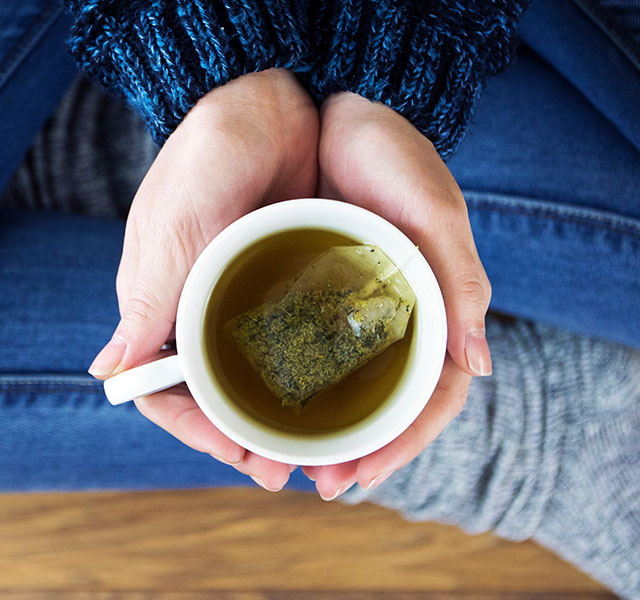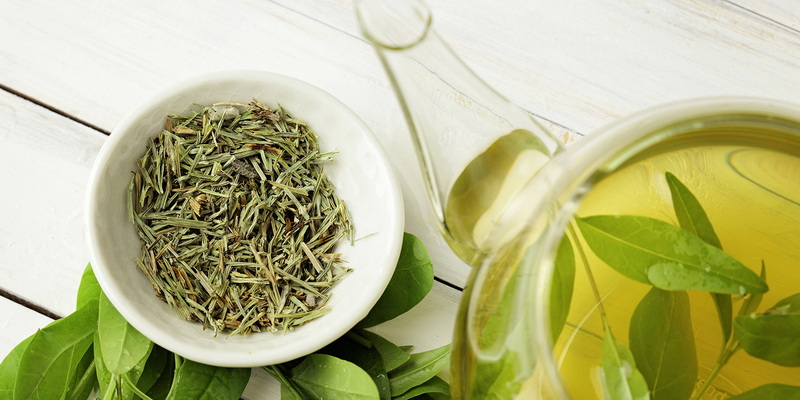Content Menu
● Introduction to Green Tea Extract
>> Key Components of Green Tea Extract
● Scientific Evidence on Green Tea Extract and Cholesterol
>> Human Studies
>> Animal Studies
>> Mechanisms of Action
● How to Use Green Tea Extract for Cholesterol Management
>> Dosage
>> Lifestyle Changes
● Potential Side Effects and Interactions
● Additional Health Benefits of Green Tea Extract
● Combining Green Tea Extract with Other Supplements
>> Potential Combinations
● Conclusion
● Frequently Asked Questions
>> 1. What are the main components of green tea extract that help with cholesterol?
>> 2. How much green tea extract should I take to lower cholesterol?
>> 3. Can green tea extract raise HDL (good) cholesterol?
>> 4. Are there any potential side effects of taking green tea extract?
>> 5. Can I use green tea extract as a substitute for cholesterol medications?
● Citations:
Green tea extract has been widely studied for its potential health benefits, including its impact on cholesterol levels. This article will delve into the scientific evidence supporting the use of green tea extract as a means to manage cholesterol, exploring both its effectiveness and limitations.

Introduction to Green Tea Extract
Green tea extract is derived from the leaves of the Camellia sinensis plant, which is also used to make black tea. However, green tea is processed differently, preserving more of its natural antioxidants, particularly catechins. The most well-known catechin is epigallocatechin gallate (EGCG), which is believed to be responsible for many of green tea's health benefits.
Key Components of Green Tea Extract
- Catechins: These are the primary antioxidants found in green tea. They are known for their anti-inflammatory properties and ability to protect against cell damage.
- Theaflavins: While more commonly associated with black tea, some green tea extracts may contain small amounts of theaflavins, which also have antioxidant properties.
- Polyphenols: A broader category of compounds that include catechins and theaflavins, known for their health benefits.
Scientific Evidence on Green Tea Extract and Cholesterol
Numerous studies have investigated the effects of green tea extract on cholesterol levels. Here are some key findings:
Human Studies
1. Meta-Analysis of Randomized Controlled Trials: A comprehensive meta-analysis of 14 randomized controlled trials involving 1136 subjects found that green tea consumption significantly lowered total cholesterol by 7.20 mg/dL and LDL cholesterol by 2.19 mg/dL. However, there was no significant effect on HDL cholesterol levels.
2. Clinical Trial on Green and Black Tea Extracts: A study involving 240 participants with high cholesterol found that a combination of green and black tea extracts reduced LDL cholesterol by 16% over a 13-week period. The extract contained catechins from green tea and theaflavins from black tea.
Animal Studies
1. Rabbit Study: In a study using cholesterol-fed rabbits, green tea catechins significantly lowered plasma cholesterol, including LDL, and reduced cholesterol synthesis in the liver.
Mechanisms of Action
Green tea extract is believed to lower cholesterol through several mechanisms:
- Inhibition of Cholesterol Synthesis: Catechins may reduce the body's production of cholesterol by inhibiting key enzymes involved in cholesterol synthesis.
- Enhanced LDL Receptor Activity: Green tea catechins can increase the liver's ability to remove LDL cholesterol from the bloodstream by enhancing LDL receptor activity.
- Reduced Fat Absorption: Some evidence suggests that green tea polyphenols may inhibit the absorption of dietary fats, which can contribute to lower cholesterol levels.

How to Use Green Tea Extract for Cholesterol Management
While green tea extract shows promise, it should be used as part of a comprehensive approach to managing cholesterol levels. Here are some guidelines:
Dosage
- Recommended Dosage: Studies often use doses ranging from 250 mg to 500 mg of green tea extract per day, which typically contains 25% to 50% catechins.
- Catechin Content: Ensure the extract is rich in catechins, particularly EGCG, for optimal benefits.
Lifestyle Changes
- Diet: Combine green tea extract with a low-fat diet rich in fruits, vegetables, and whole grains.
- Exercise: Regular physical activity can enhance the cholesterol-lowering effects of green tea extract.
Potential Side Effects and Interactions
While generally considered safe, high doses of green tea extract may cause side effects such as:
- Liver Damage: High doses of EGCG have been linked to liver damage in rare cases.
- Interactions with Medications: Green tea extract may interact with certain medications, such as blood thinners.
Additional Health Benefits of Green Tea Extract
Beyond cholesterol management, green tea extract has been associated with several other health benefits:
- Weight Loss: Green tea extract may aid in weight loss by increasing metabolism and fat burning.
- Antioxidant Properties: The high antioxidant content helps protect against oxidative stress and cell damage.
- Cardiovascular Health: Regular consumption of green tea has been linked to reduced risk of cardiovascular diseases.
Combining Green Tea Extract with Other Supplements
Some individuals may consider combining green tea extract with other supplements to enhance its cholesterol-lowering effects. However, it is crucial to consult with a healthcare provider before adding any new supplements to your regimen.
Potential Combinations
- Fish Oil: Omega-3 fatty acids in fish oil may complement the effects of green tea extract by further improving lipid profiles.
- Plant Sterols: These natural substances can help lower LDL cholesterol and may work synergistically with green tea catechins.
Conclusion
Green tea extract, particularly its catechin content, has been shown to lower total and LDL cholesterol levels in both human and animal studies. However, it should be used as an adjunct to, not a replacement for, established cholesterol management strategies. Further research is needed to fully understand its long-term effects and optimal dosing.

Frequently Asked Questions
1. What are the main components of green tea extract that help with cholesterol?
The main components are catechins, particularly EGCG, which are believed to be responsible for the cholesterol-lowering effects of green tea extract.
2. How much green tea extract should I take to lower cholesterol?
Typically, studies use doses ranging from 250 mg to 500 mg per day, with a catechin content of 25% to 50%.
3. Can green tea extract raise HDL (good) cholesterol?
Some studies suggest that green tea may help raise HDL cholesterol, but the evidence is not as strong as for lowering LDL cholesterol.
4. Are there any potential side effects of taking green tea extract?
Yes, high doses may cause liver damage or interact with certain medications. It is advisable to consult a healthcare provider before starting any supplement regimen.
5. Can I use green tea extract as a substitute for cholesterol medications?
No, green tea extract should not be used as a substitute for prescribed cholesterol medications. It is best used as an adjunct to other treatments under medical supervision.
Citations:
[1] https://pubmed.ncbi.nlm.nih.gov/21715508/
[2] https://pubmed.ncbi.nlm.nih.gov/16970948/
[3] https://news.vanderbilt.edu/2003/06/24/green-black-tea-extracts-found-to-lower-cholesterol-59969/
[4] https://www.medicalnewstoday.com/articles/what-is-the-best-drink-to-lower-cholesterol
[5] https://www.healthline.com/nutrition/10-benefits-of-green-tea-extract
[6] https://pmc.ncbi.nlm.nih.gov/articles/PMC5118731/
[7] https://www.cebm.ox.ac.uk/research/projects/green-tea-and-blood-pressure-effects
[8] https://www.mountsinai.org/health-library/herb/green-tea






























